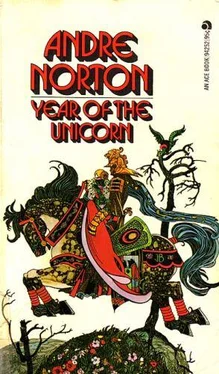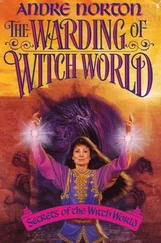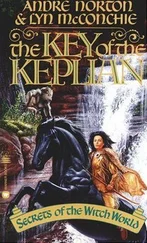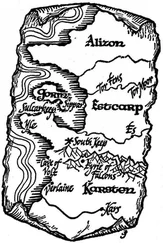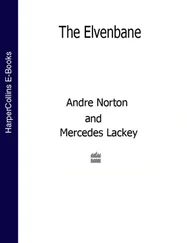Still caution walked with me and I did not forget to use the sight as a check upon the countryside. The sun arose, was warm, so that the fur rug which had been such a boon in the hills was now a sorry drag upon my arm. I was folding it for the fourth time when I chanced to look upon the ground and a small chill froze me in mid-gesture.
I threw no shadow—that dark mark of any standing or moving thing in a lighted world was no longer mine! Smarkle had accused me of that in the Hound camp, but I had been too intent upon escape for it to make much impression on my mind. But I was real—solid—flesh and bone! Around me trees, bushes, tall clumps of grass all had their proper patch of corresponding shade to mark their presence. But it was as if I were as unsubstantial as that piece of bridge had been in my sight.
Was I only real to myself? But the Hounds had seen me, laid hands upon me, had thought to do even more. To them I had been solid, had had life. That I hugged to me, though I had never thought to be thankful for my meeting with those ravagers and outlaws.
Now I moved my hands, striving to win an answer to that movement on the ground. And the confidence built up during my morning’s wanderings ebbed somewhat. So small a shadow, something we seldom think on. But to lack it—ah, that was another matter. Suddenly it became one of the most important possessions, as needful as a hand, a limb—as needful to one’s sense of sanity.
Even the double sight gave me no shadow. But I used it on the surrounding country and saw—
I was no longer in a world empty of inhabitants. Mist formed grew more visible as I concentrated, stiffened, became opaque and solid seeming. To my left there was a lane turning from the road, and at the end of that lane a farm garth. An old house with a sharply gabled roof, outbuildings, a walled enclosure which might mark a special garden. It was unlike the holdings of the Dales with that steeply pitched roof, with the carvings scalloped around the eaves and dormer windows. The front faced a paved yard in which I saw figures passing. And the more I studied it, the clearer my sight came to be. This was the true sight, the empty fields the illusion.
Without making any real decision I turned into that lane, hurried my steps to the paved yard. And the closer I came the more imposing the house. The roof was covered with slates, the house itself was of stone—that same blue-green stone I had found on the heights. But the carvings were touched with gold and a richer green. Over the main door was set a panel bearing a device like unto the arms of the Dales, yet different, since it made use of intertwined symbols and not the signs of heraldry. And about it was the feeling of age, not an age which drains and exhausts by the passing of years, but an age which adds and enriches.
Those who went about their business outside were two, a man who led horses from the stable to drink at a trough, and a capped maid shooing fowls before her—fowls of brilliant feathers and long slender legs.
I could not see their faces clearly, but plainly they were made like unto me and human seeming. The man wore silver-grey hosen, and an over-jerkin of grey leather, clipped in at the waist with a belt on which gleamed metal. And the maid had a gown of russet, warm as a hearth fire and over it a long, apron-shift of yellow, the same colour as her cap.
The pavement of the yard was solid under my boots. And the maid approached me, sowing grain for the birds from a shallow basket on her arm.
“Please—” Suddenly I needed contact, for her to see me, answer—I had spoken aloud but she did not glance at me, even turn her head in my direction.
“Please—” My voice was thin but loud. In my own ears it rang above the sounds made by the fowls. Still she did not look to me. And the man, having watered the horses, returned with them to the stables, passing close by. He looked, yes, but manifestly he did not see. There was no change of expression on his thin face with its slanted brows and pointed chin-like in that much to the Riders’ features.
I could stand their indifference no longer. Reaching out I caught the maid’s sleeve. She gave a little cry, jerked back and stared about her as one bewildered and a little afraid. At her ejaculation the man turned and called query in a tongue I did not know. Though both of them looked to where I stood, yet they did not show that they saw me.
My concentration broke. They began to fade, that age-old house, man and maid, buildings, fowls, horses—thinner and thinner—until they were gone and I stood in the middle of one of the fields utterly alone again. Still in me I knew that my sight was reversed—where once I had seen good slicked over ill, now I saw ill slicked over good. To me this was a land of wraiths—and to them I was the wraith!
I stumbled back to the road and sat down on its verge, my spinning head in my hands. Would I ever be real in this land? Or not so until I found the other Gillan? Was she real here?
The Hound rations were only a few crumbs now. Where would I find sustenance, this wraith who was me? Perhaps I could break the illusion long enough at some garth or manor to find food, though I might have to take it without asking, if those who dwelt there could not see me. Let me only reach that other Gillan, I prayed—to what power might rule in this land—let me be one again—and real—complete!
For a while I no longer tried to see what lay beneath the overriding cover of emptiness. How well these people had chosen their various skins of protection—the Guardians—that horror on the mountain road, and this new blanket to meet the eyes of any invader. A company of Hounds might ride here, mile after mile, and see naught to raid. How much had I passed by chance without knowing that it was there? Keeps, manors, towns?
More food I must have, and if I must raid for it, then it would be necessary to see. Two manors I sighted dimly as I went on were too far from the road, and I clung to that because it was real. And it led, my invisible guide told me, in the right direction.
It was mid-afternoon when I saw the village. Again it lay on a side way. And I speculated as to why all the dwellings I had seen did not abut on this highway but stood always some distance from it. Was the road itself a trap of sorts, to lead an invader across open country well apart from any inhabited place where blundering chance might inform him that all fields were not as they appeared?
A small village, perhaps a score of houses, with a towered structure in their midst. The people in its two streets were shadows to me. I did not try to see them better. It was enough that I could distinguish them and avoid their movements. But the houses I concentrated upon.
The nearest I dared not approach, for a woman sat on the stoop spinning. The next, children ran about the yard engaged in a vigorous game. And the third showed a closed door which might be latched against all comers. But the fourth was a larger building and a signboard with a painted symbol swung out over its main door—it could well be an inn.
I strained my power to keep it real and visible as I went in the half open door beneath that board. There was a short passage, a door in it to my left, giving upon a long room in which were trestle tables and benches. Set out on one of those tables a plate with a brown loaf, next to it a round of deep yellow cheese from which had been cut a wedge. Almost I thought they might fade into nothingness as my fingers closed about them. But they did not. I bundled both into a fold of the rug and turned to go, well content.
A figure flickered in the doorway—one of the misty people of the village. I backed to the wall. But the newcomer came no farther in. A little alarmed. I strove to build that wavering outline into a solid person. A man—he wore leather breeks, boots, chainmail under a short surcoat of silky fabric, like in fashion to that of the Riders, save his were not furred. Instead of a helm a cap covered his head, its front turned up and fastened with a gemmed brooch.
Читать дальше
